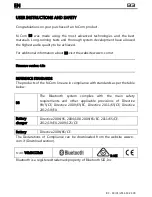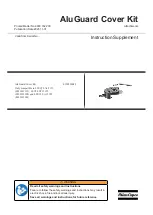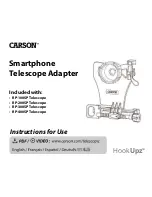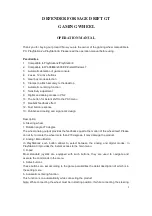
6
2. LOADING AND TONGUE WEIGHTS
Tongue weight is a much-discussed aspect of trailer use. Too much is bad, not enough is
bad, so how do you determine the happy medium? Point in fact dictates that a trailer will
wander if tongue weight is not sufficient to give the trailer “direction”. Without
“direction”, all trailers will wander behind the tow vehicle and cause handling problems.
Insufficient tongue weight will result in erratic trailer handling. Excessive tongue weight
will cause coupler fatigue, hitch fatigue or failure and increased wear and tear on the tow
vehicles mechanical components.
Trailer Industry standards suggest a ratio of 10% to 15% of the trailers gross vehicle
weight (GVW- base weight of trailer and its cargo) be applied to the coupler as an ideal
tongue weight. This weight is routinely measured by using a bathroom scale or fish
scale, weighing the applied load at the ball or coupler. This weighing exercise must
allow that the coupler is at the installed or operational height to determine the actual
tongue weight during use.
Loading of cargo is a major function in determining tongue weight. Load placement and
distribution must be executed carefully and thoughtfully, with added consideration given
to additional weight in and on accessory items such as coolers and luggage racks.
Adding or subtracting load must be accomplished with the same care and thought as the
original loading was given, and tongue weight rechecked!
WARNING:
ALWAYS LOAD CARGO SO THAT HEAVIEST ITEMS ARE
LOWEST AND DISTRIBUTED FRONT TO REAR. NEVER PUT THE HEAVIEST
ITEM AT THE REAR OF THE TRAILER, AS THIS WILL INCREASE THE
TRAILERS TENDENCY TO SWAY. LOADING THE TRAILER IN EXCESS OF
THE GVWR (gross vehicle weight rating) IS DANGEROUS AND COULD CAUSE
SERIOUS PERSONAL INJURY OR DEATH.
WARNING:
IF THE TRAILER FAILS TO HANDLE IN A SAFE AND
PREDICTABLE MANNER,
STOP
! DO NOT OPERATE THE TRAILER UNTIL
YOU HAVE DETERMINED AND CORRECTED THE CONDITION OR PROBLEM.







































